Evergrande's filing for bankruptcy protection in the US is a warning to the model that has helped China grow rapidly over the past 30 years.
China Evergrande Group filed for bankruptcy protection in the United States on August 17. Once one of China’s most successful real estate companies, the company had been aggressively borrowing money for decades to grow its business as the domestic economy boomed. Demand for housing was so strong that developers often pre-sold apartments before construction was even finished.
However, two years ago, the Chinese government changed its policies, causing real estate companies to struggle. Evergrande's decline also started from that time. The three red lines policy was introduced to control the debt bubble, slowing the rise of house prices. However, it also caused real estate companies to lose their key source of capital.
Evergrande, with more than $300 billion in debt, was unable to raise money quickly enough to pay it off. Its default in December 2021 triggered a market panic. A wave of defaults followed, with Kasia, Fantasia and Shimao Group, leaving China’s massive property market still reeling. Dozens of projects have stalled, leaving many buyers without homes and saddled with huge mortgages.
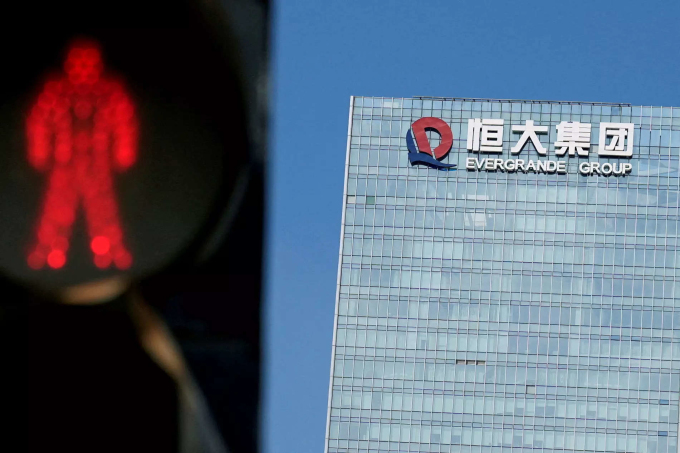
Outside Evergrande's headquarters in Guangdong (China). Photo: AP
Now, what happens next as Evergrande attempts to restructure billions of dollars in foreign debt will have major implications for China’s financial system. Evergrande filed for Chapter 15 bankruptcy protection under the U.S. Bankruptcy Code.
The move would allow foreign companies to use U.S. bankruptcy law to restructure their debt. The process will take time, as Evergrande has $19 billion in foreign debt. In August, Evergrande will meet with creditors to convince them to agree to the restructuring plan.
Experts say Evergrande’s liquidity crisis is just the start of a deeper crisis in China’s property market, raising concerns about the spillover effects on the financial system that could destabilize a Chinese economy already weakened by weak domestic and foreign demand, sluggish factory activity and rising youth unemployment.
Several major Chinese developers have defaulted in the past two years, hit by cash crunch and falling demand for housing. Now, investors around the world are cautiously watching Country Garden, another Chinese property giant.
The company, which employs about 300,000 people, has missed interest payments on two bonds and is considering “multiple debt solutions.” Moody’s downgraded Country Garden’s credit rating last week, calling its debt “high risk.”
Real estate is a vital sector for the Chinese economy, accounting for 30% of the country's economic activity. More than two-thirds of urban households' assets are tied up in real estate.
However, nearly three years of implementing the Zero Covid policy have tightened China’s economic growth. Consumers are also hesitant to buy new homes due to high unemployment and falling real estate prices.
After a surge earlier this year, China’s economic activity is slowing. Consumer prices fell last month for the first time in more than two years. Youth unemployment is rising rapidly. Retail sales, export demand and factory production are all slowing.
However, experts say Beijing is unlikely to bail out real estate companies. So far, it has only introduced measures to support housing demand and free up more capital for companies to borrow. The era of using the budget to bail out industries may be over.
"China's real estate sector is like a black hole. Too many real estate companies were dragged into it after Evergrande's troubles two years ago. The government has yet to take any strong measures because the hole is too big to fill," CEO Winner Zone Asset Management told Reuters.
Ha Thu (according to CNN, Reuters)
Source link







![[Photo] Hanoi morning of October 1: Prolonged flooding, people wade to work](https://vphoto.vietnam.vn/thumb/1200x675/vietnam/resource/IMAGE/2025/10/1/189be28938e3493fa26b2938efa2059e)
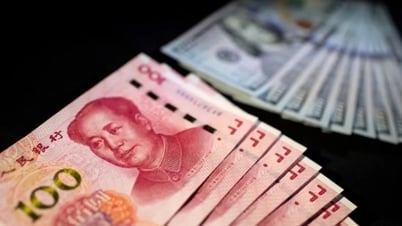



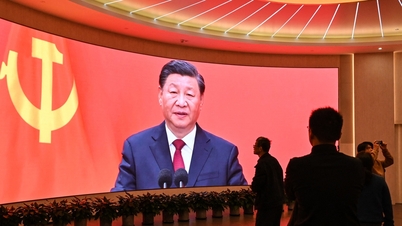

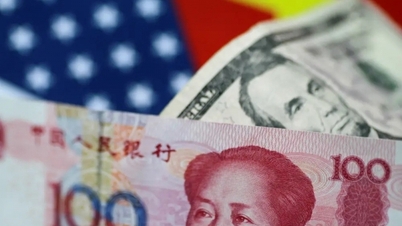




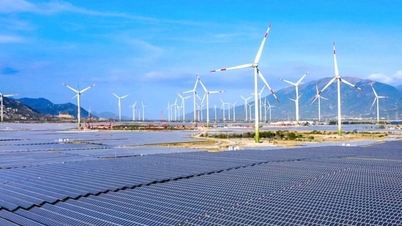
















![[Photo] The 1st Congress of Phu Tho Provincial Party Committee, term 2025-2030](https://vphoto.vietnam.vn/thumb/1200x675/vietnam/resource/IMAGE/2025/9/30/1507da06216649bba8a1ce6251816820)
![[Photo] President Luong Cuong receives President of the Cuban National Assembly Esteban Lazo Hernandez](https://vphoto.vietnam.vn/thumb/1200x675/vietnam/resource/IMAGE/2025/9/30/4d38932911c24f6ea1936252bd5427fa)
![[Photo] Panorama of the cable-stayed bridge, the final bottleneck of the Ben Luc-Long Thanh expressway](https://vphoto.vietnam.vn/thumb/1200x675/vietnam/resource/IMAGE/2025/9/30/391fdf21025541d6b2f092e49a17243f)
































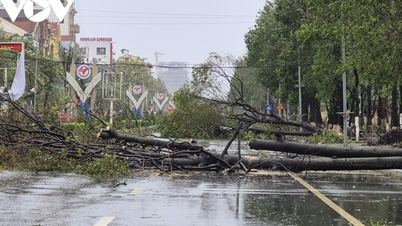


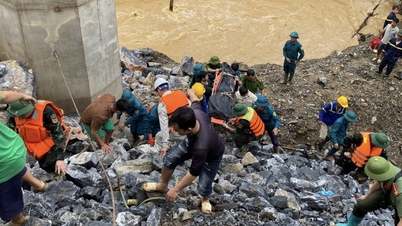






















Comment (0)